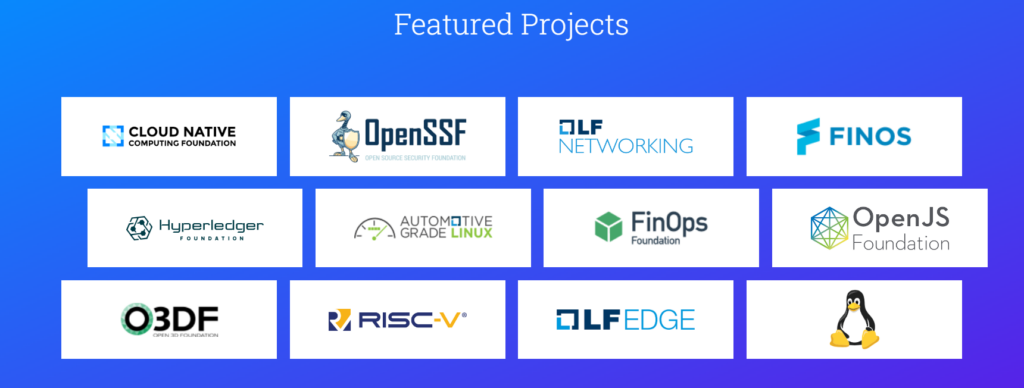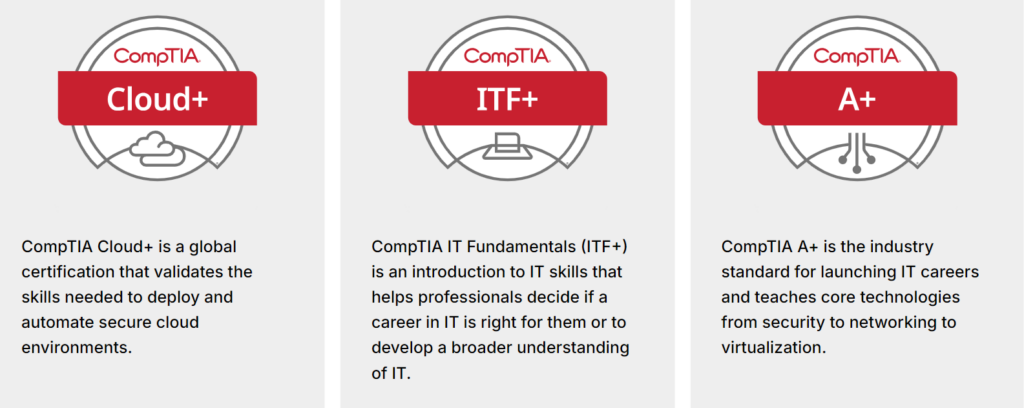Introduction
The Linux Foundation and CompTIA are two of the most recognized organizations in the tech world, offering certifications, training, and resources aimed at professionals looking to advance in their careers. While both organizations focus on IT skills, they serve distinct niches within the industry. The Linux Foundation primarily revolves around open-source software and Linux systems, whereas CompTIA provides vendor-neutral certifications for a broad spectrum of IT disciplines. In this comparison, we’ll break down the two organizations in terms of their offerings, features, pricing, and more to help you make an informed choice.
Overview
Linux Foundation Overview
The Linux Foundation is a non-profit organization established in 2000 with the primary mission to promote, protect, and standardize Linux as a globally recognized operating system. Over the years, it has grown to become a cornerstone in the open-source community, expanding its reach beyond Linux to support a wide range of collaborative projects that drive technological advancements in areas like cloud computing, networking, blockchain, and artificial intelligence.

The foundation not only oversees the growth and development of Linux but also supports over 100 different open-source projects such as Kubernetes, Hyperledger, and Node.js. Its role in providing educational resources, certifications, and training has helped IT professionals gain the expertise necessary to manage and contribute to these high-demand technologies. The Linux Foundation offers both free and paid training programs and certifications, making it accessible for a wide range of learners from different backgrounds.
Target Audience:
Linux Foundation certifications and training programs are ideal for professionals seeking to specialize in open-source technologies, particularly Linux system administration, DevOps, cloud infrastructure, and containerized applications.

Popular Certifications:
- Linux Foundation Certified System Administrator (LFCS): Aimed at individuals with basic Linux administration skills.
- Certified Kubernetes Administrator (CKA): Focuses on Kubernetes cluster management, a highly valued skill in cloud and containerization.
- Linux Foundation Certified Engineer (LFCE): For more advanced Linux professionals managing complex systems.
Notable Projects and Technologies Supported by the Linux Foundation:
- Kubernetes: The industry standard for container orchestration.
- Hyperledger: A blockchain project used for enterprise applications.
- Linux: The open-source operating system that powers the majority of servers and supercomputers globally.
- Cloud Native Computing Foundation (CNCF): Oversees the development and management of cloud-native applications, including Kubernetes.
CompTIA Overview
The Computing Technology Industry Association (CompTIA) is a globally recognized, non-profit trade association founded in 1982. It is best known for offering vendor-neutral certifications, which are widely accepted across the IT industry. CompTIA’s certifications are designed to provide IT professionals with a broad foundation of skills that can be applied across various technologies and industries. CompTIA’s key focus areas include information security, cloud computing, networking, and IT infrastructure, making its certifications highly versatile.

CompTIA certifications cater to individuals at different stages of their careers, from entry-level IT professionals to advanced cybersecurity experts. With its global recognition, CompTIA is seen as a foundational certification provider for many roles in the IT industry, particularly for those who want to start a career in IT or enhance their existing skills in specific areas like security or networking.
Target Audience:
CompTIA’s certifications are ideal for those looking to develop a broad, foundational understanding of IT, cybersecurity, cloud computing, or networking. Its certifications, such as A+, Network+, and Security+, are often pursued by entry- to mid-level IT professionals.
Popular Certifications:
- CompTIA A+: An entry-level certification designed to equip individuals with fundamental IT skills, including hardware, networking, and troubleshooting.
- CompTIA Network+: Focuses on networking concepts, covering both wired and wireless networks, as well as foundational security practices.
- CompTIA Security+: A certification for IT professionals seeking to specialize in cybersecurity, covering risk management, cryptography, and network security.
- CompTIA Cloud+: Designed for professionals working in cloud environments, this certification focuses on cloud computing concepts, deployment, and security.
Learning Approach:
- Vendor-Neutral Certification: CompTIA provides certifications that are applicable across multiple platforms and technologies, unlike certifications tied to specific vendors (e.g., Microsoft, Cisco).
- Comprehensive Learning Paths: CompTIA offers structured learning paths for different career tracks such as IT support, networking, cloud computing, and security.
- Exam Preparation Resources: They provide various training materials, including study guides, labs, and practice tests to prepare individuals for their certification exams.
Summary of Key Differences
- Specialization vs. Broad IT Skills:
- The Linux Foundation focuses on Linux, open-source technologies, and projects such as Kubernetes, appealing to those interested in Linux administration, DevOps, or cloud-native computing.
- CompTIA, on the other hand, provides a broad spectrum of IT certifications that are not tied to any one vendor or technology, making it suitable for general IT professionals and those at the start of their careers.
- Target Audience:
- Linux Foundation: More suitable for developers, system administrators, and cloud professionals who want to specialize in open-source or Linux-based environments.
- CompTIA: Ideal for entry- to mid-level IT professionals looking to build or expand their general IT skills, particularly in networking, security, and cloud computing.
- Certification Types:
- Linux Foundation: Focuses on certifications like LFCS and CKA, which are highly specialized and cater to advanced open-source technologies.
- CompTIA: Offers a range of certifications like A+, Security+, and Network+ that provide a broader IT foundation.
- Global Recognition:
- Both the Linux Foundation and CompTIA are recognized worldwide, but CompTIA is especially well-known for its entry-level certifications, while the Linux Foundation is revered for its contributions to the open-source community.
Features
Linux Foundation Features:
- Specialization in Linux and Open Source: The Linux Foundation is the go-to resource for Linux-based certifications and open-source technology training. If you’re focused on Linux system administration, cloud computing, or DevOps, the Linux Foundation’s offerings are invaluable.
- Collaboration with Open Source Projects: It collaborates with several significant open-source projects, such as Kubernetes, Hyperledger, and Cloud Foundry, offering related certifications.
- In-Depth Courses: The Linux Foundation provides various self-paced and instructor-led courses, covering everything from Linux fundamentals to advanced cloud-native application management.
- Industry-Recognized Certifications: Their certifications, such as Certified Kubernetes Administrator (CKA), Certified Kubernetes Application Developer (CKAD), and Linux Foundation Certified Engineer (LFCE), are widely respected in the tech industry.
CompTIA Features:
- Broad Certification Spectrum: CompTIA offers certifications across different IT disciplines such as cybersecurity (Security+), cloud computing (Cloud+), and networking (Network+), making it ideal for IT professionals seeking a wide-ranging skillset.
- Vendor-Neutral Certifications: Unlike certifications from specific vendors like Cisco or Microsoft, CompTIA focuses on providing vendor-neutral credentials that can be applied to any technology or platform.
- Career Path Guidance: CompTIA organizes its certifications into career paths, helping individuals identify what certifications they need depending on whether they want to focus on areas like cybersecurity, networking, or IT support.
- Interactive Learning Tools: They provide a wealth of learning resources, including labs, practice exams, and interactive study tools that prepare candidates for certification exams.

Pricing
Linux Foundation Pricing:
- Certifications: The Linux Foundation certifications typically range from $300 to $575, depending on the program. For example:
- LFCS (Linux Foundation Certified System Administrator): $375
- CKA (Certified Kubernetes Administrator): $395
- Training Courses: Training courses vary widely, but most instructor-led courses cost between $700 and $3000. Self-paced courses are more affordable, typically ranging from $299 to $499.
- Bundles: They also offer certification and training bundles at discounted rates, which can be a cost-effective option.

CompTIA Pricing:
- Certifications: CompTIA certifications range from $246 to $438, making them relatively affordable. For example:
- A+ Certification: $246 per exam (requires passing two exams)
- Security+ Certification: $392
- Network+ Certification: $358
- Training Materials: CompTIA provides a range of learning materials, including study guides, labs, and practice tests. These resources vary from $100 to $500, depending on the level of access (self-study or instructor-led courses).
- Bundles and Discounts: CompTIA offers bundles combining exam vouchers and study materials, which often provide some savings compared to purchasing them separately.

FAQ
Which organization is more suitable for beginners?
CompTIA is generally more beginner-friendly, especially with certifications like A+ that cater to entry-level IT professionals. The Linux Foundation, while beginner courses exist, is more focused on individuals looking to specialize in Linux or open-source technologies.
How long are the certifications valid?
Both Linux Foundation and CompTIA certifications are valid for three years. However, the recertification processes differ, with the Linux Foundation often requiring a re-exam, while CompTIA offers continuing education units (CEUs) to maintain certification status.
Can I pursue both Linux Foundation and CompTIA certifications?
Yes, many professionals pursue both, as Linux Foundation certifications offer specialization in open-source technologies, while CompTIA’s certifications provide a broader IT foundation.
What kind of job roles can I expect after getting certified?
With Linux Foundation certifications, you can pursue roles like Linux system administrator, cloud engineer, or DevOps engineer. CompTIA certifications open doors to roles such as IT support technician, network engineer, and cybersecurity analyst.
Do both organizations offer hands-on training?
Yes, both Linux Foundation and CompTIA offer hands-on labs and practical exercises, but the Linux Foundation’s training is more aligned with working in open-source environments, whereas CompTIA focuses on broad, foundational IT skills.
Conclusion
Both the Linux Foundation and CompTIA offer valuable certifications that cater to different aspects of IT. If you’re looking to specialize in Linux or open-source technologies, the Linux Foundation is the clear choice, with its focus on projects like Kubernetes, blockchain, and cloud computing. On the other hand, if you’re seeking a broad-based, vendor-neutral foundation in IT, CompTIA certifications are a better option. In many cases, professionals pursue certifications from both organizations to gain a well-rounded skill set. Ultimately, your choice should depend on your career goals and area of focus within the IT industry.


